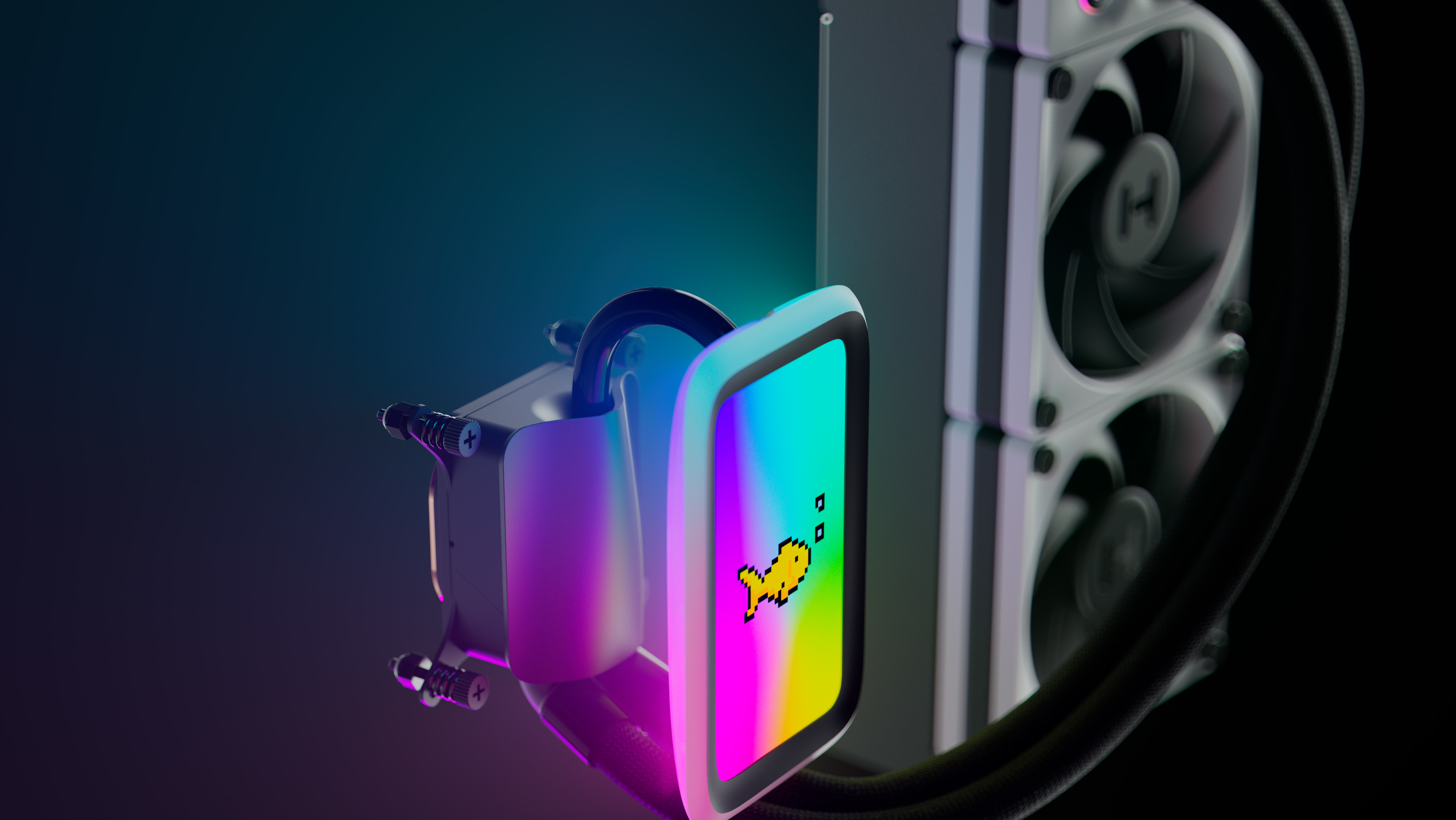
It's hard to go check out a gaming company's wares at CES without seeing a whole lot of RGB. In Las Vegas, we got to look closely at Hyte's freshly-released Nexus Link ecosystem, including its THICC Q60 AIO (announced at Computex 2024) and accompanying cooling and RGB setup. Besides the core components of the Nexus Link Ecosystem, Hyte has also released its Keeb TKL keyboard ($179.99), which is compatible with Hyte's Nexus control software.
The Hyte Nexus Link Ecosystem uses Type-C and Type-M Nexus Link connectors between primary and secondary "nodes." A "primary node" refers to a Hyte THICC Q60 AIO ($299) or Nexus Portal NP50 (bundled with fans or light strips for an extra $30 if you don't have the AIO) used as a central cooling or control unit. Your cooling fans and RGB lighting strips function as "secondary nodes."
One of the most prominent pieces of the new ecosystem is Hyte's THICC FP12 fan, retailing at $79.99 in a 3-pack. They can be used with the M-Type Nexus Link connector or legacy PWM fan control. These are 120 mm fans built with highly rigid, aerodynamic, fiberglass-reinforced liquid crystal polymer blades. They're pretty thick and don't have their own RGBs; you must use the LS10 qRGB Light Strips (3-Pack for $39.99) or LS30 qRGB Strips (3-Pack for $44.99) instead.

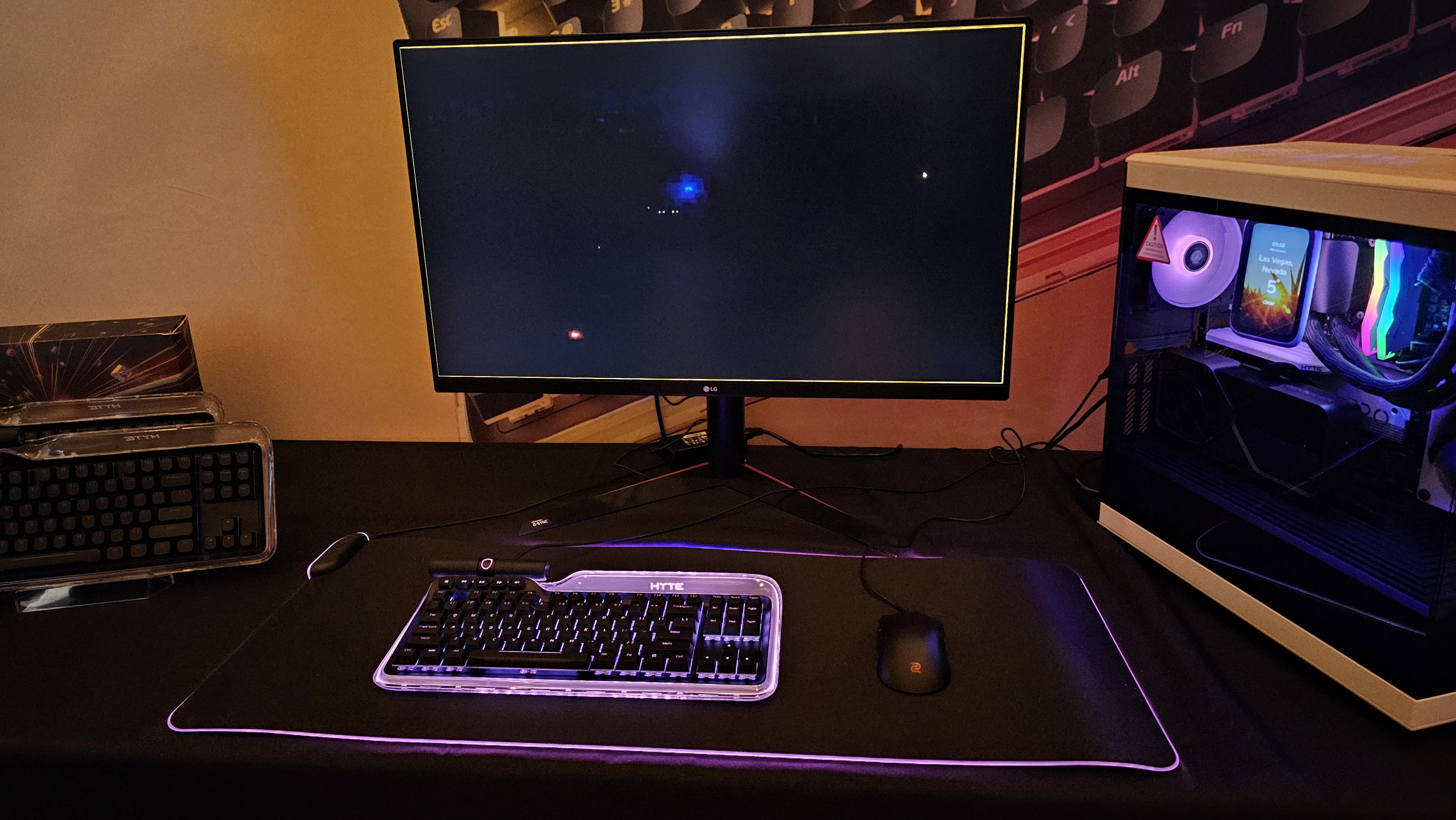
Tom's Hardware managing editor Matt Safford saw the display at CES. He found that Hyte's Nexus Link ecosystem is clearly a competitor to Corsair's iCue Link, with similar daisy-chained magnetic connectors and fans to simplify cable clutter and building. But the company also has multiple magnetic LED strips that use the same connector, and quirky but much more interesting design.
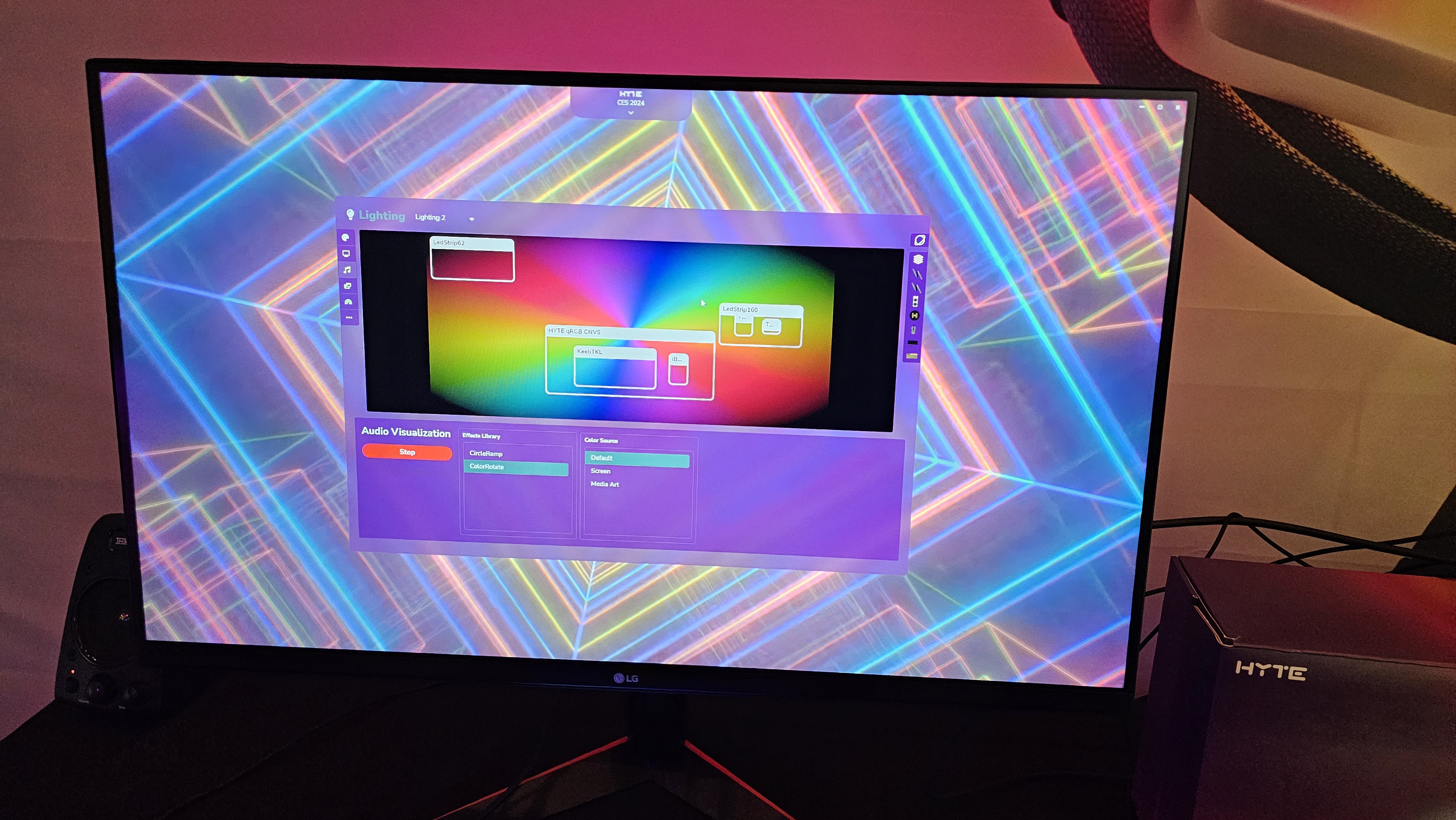
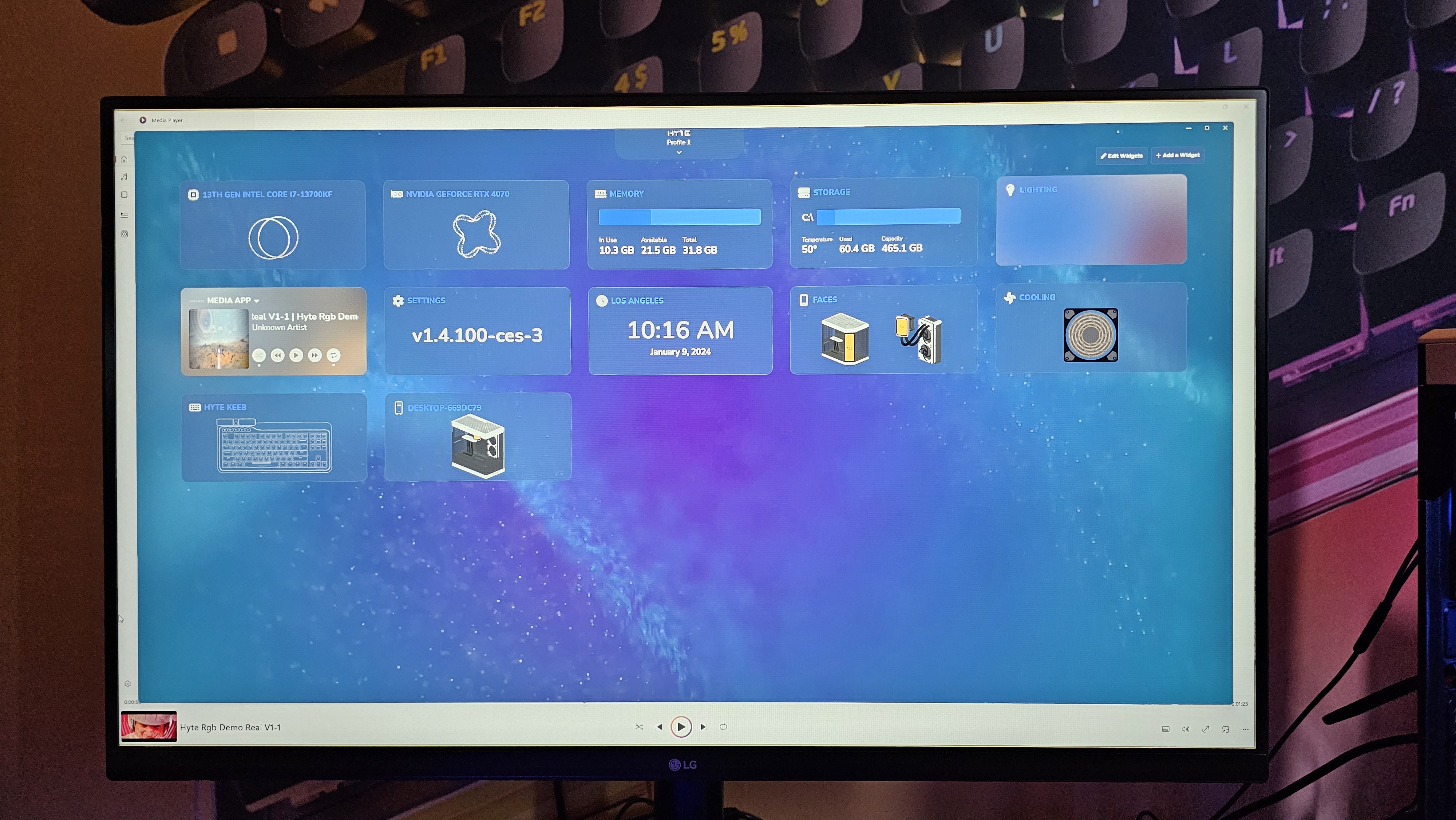
And Hyte allows for daisy chaining more products. Plus the whole ecosystem from the hardware to software feels more refined, more visually interesting, and arguably better built than what Corsair has done, at least in the demo, Matt found. That's a little shocking from a company so comparatively new and presumably smaller than Corsair. Although Hyte is tied to iBuyPower and NZXT, so it likely has more resources and expertise than most people might expect.
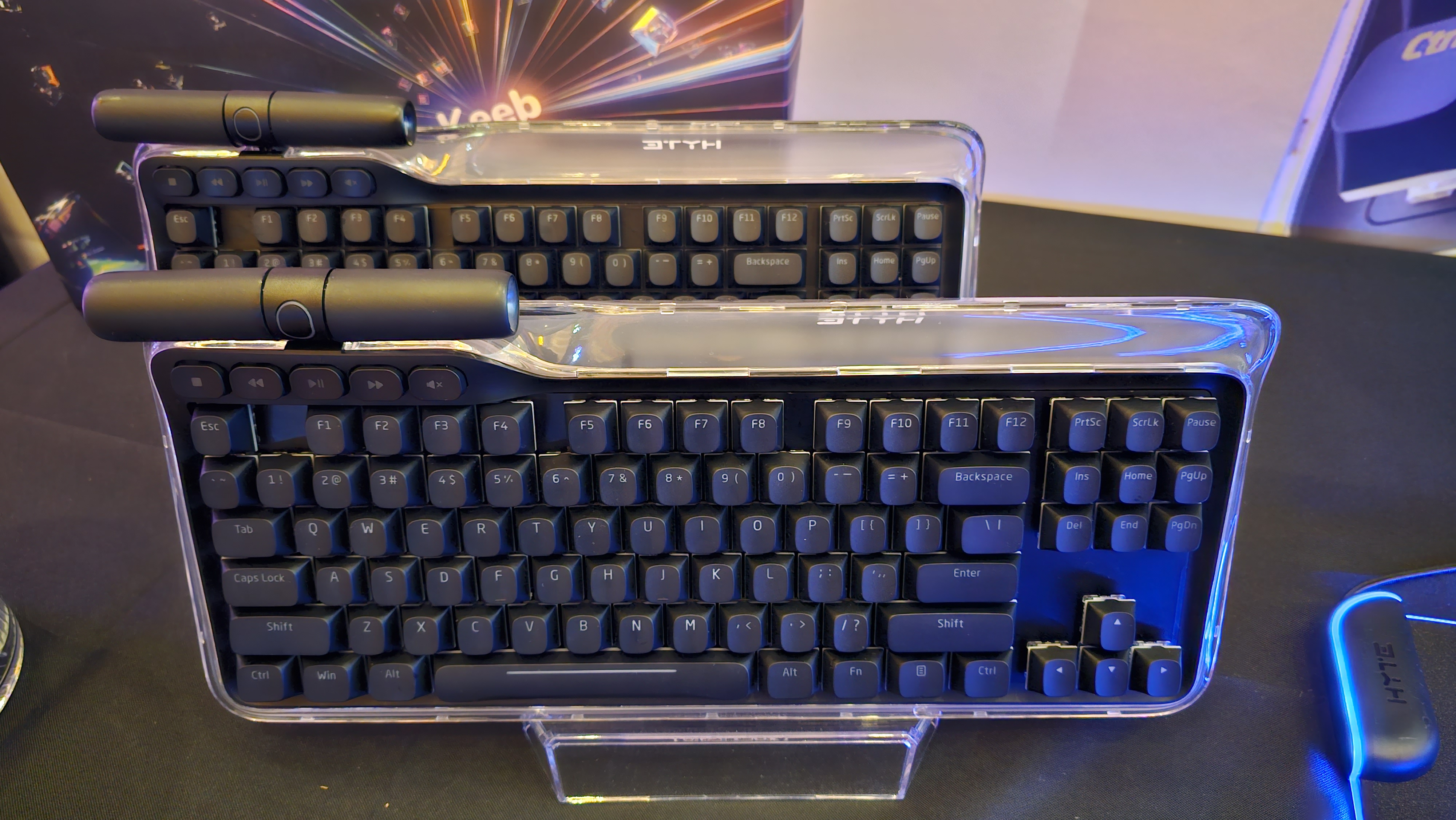

The demo left Matt feeling that Hyte is beating Corsair and Lian Li to the RGB and cooling cable simplification game, while doing something truly unique with its thick fans and radiators. That should lead to better performance in cases where there's room for bulkier cooling hardware. And you can bet the company's own popular Y Series cases were and will be built with its Nexus Link ecosystem in mind.


"After nearly 15 years of attending CES and over 25 years of building, upgrading, and occasionally molding PCs, I'm probably not very easy to impress," Matt wrote from the show floor. "I will wait for the chance to build a Nexus Link system and spend some time with the software before I can say for sure how it compares to the competition from Corsair. But what I saw and experienced today at Hyte's showroom was definitely a stand-out of CES 2024 so far."







